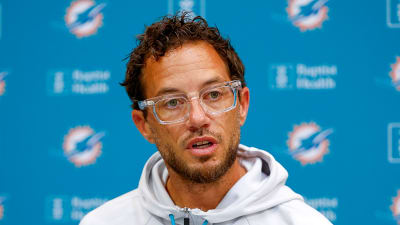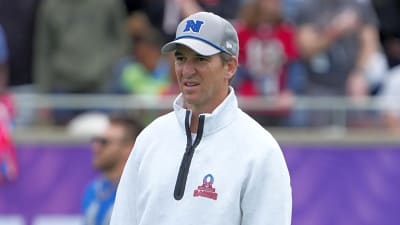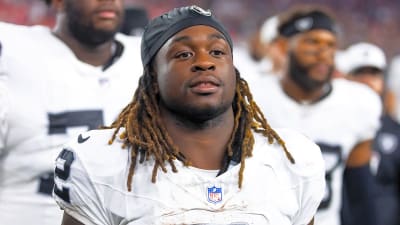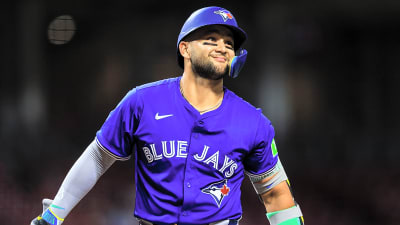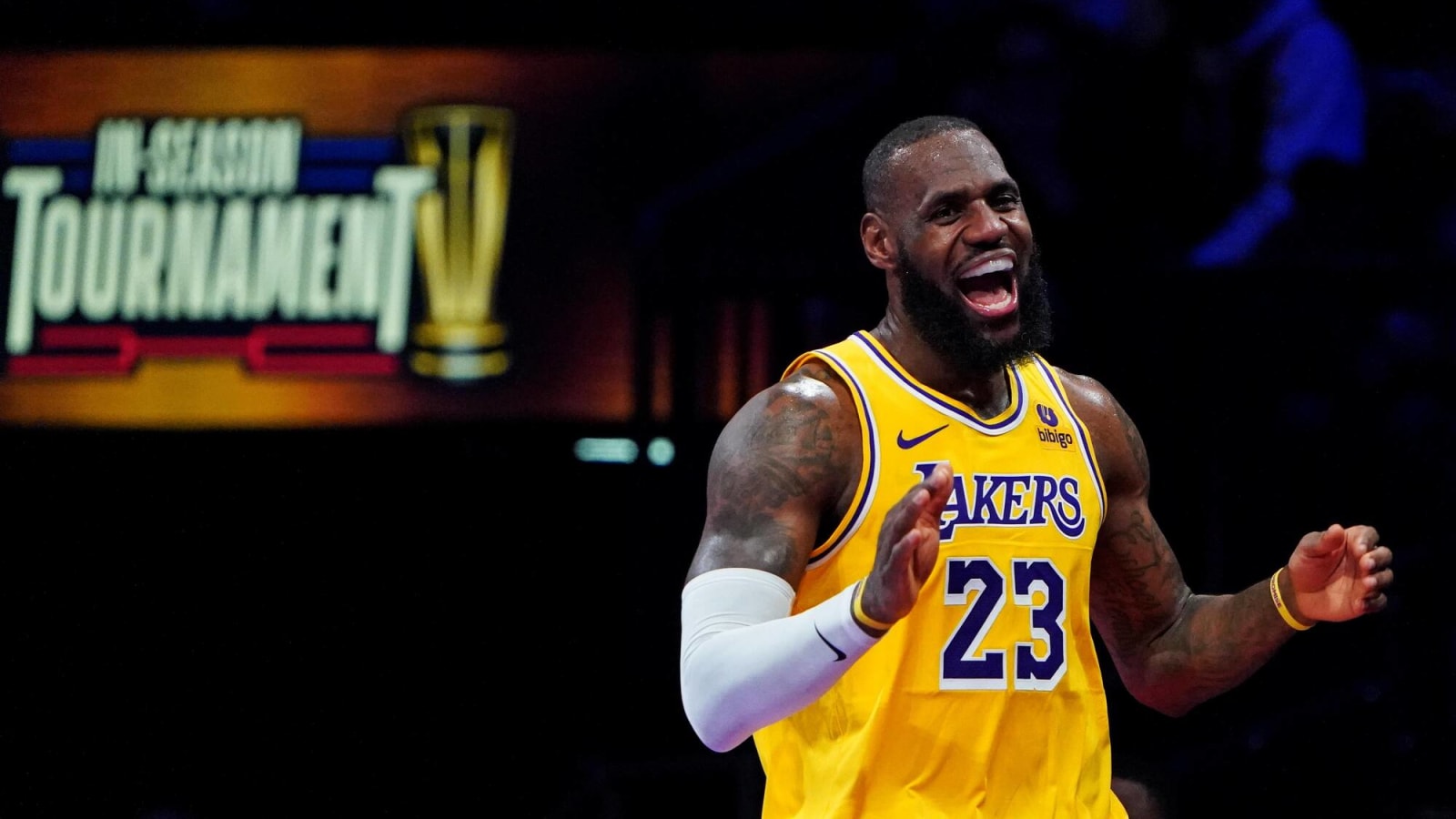
The question of who is the greatest NBA team ever is constantly asked in basketball communities. There are a ton of contenders for that elusive title, but it might be easier to name all the greatest teams of all time and place them in tiers. Of course, Tier 1 belongs to the single greatest NBA team we have ever seen.
Without further ado, here is Fadeaway World’s ranking of all the greatest teams ever divided into a tier system. While there is steep competition in each tier, there has to be one team that usurps all and stands alone in Tier 1. Let’s find out which team that is as we rank the 20 best into five tiers.
Tier 5: Classic Sides
2011-12 Miami Heat
Regular Season Record: 46-20
Playoff Record: 16-7
NBA Champions
7th PPG (98.5)
4th OPPG (92.5)
The 2011-12 Miami Heat, led by LeBron James, Dwyane Wade, and Chris Bosh, marked the team's redemption after a Finals loss the previous year. Coached by Erik Spoelstra, the Heat finished the lockout-shortened regular season with a 46-20 record. LeBron James, in his second season with the Heat, delivered a stellar performance, winning the league MVP and NBA Finals MVP awards. He averaged 27.1 points, 7.9 rebounds, and 6.2 assists per game during the regular season.
In the postseason, the Heat faced challenges, including a seven-game series against the Boston Celtics in the Eastern Conference Finals. In the NBA Finals, they met the Oklahoma City Thunder and secured the championship in a five-game series. LeBron's series-clinching triple-double in Game 5 and his overall Finals performance showcased his ability to carry a team to victory, solidifying the Heat's place in NBA history.
No doubt, LeBron's partnership with Wade and Bosh with defensive-minded and sharpshooting role players such as Mario Chalmers, Udonis Haslem, Shane Battier, and Mike Miller made this team very difficult to handle on both ends of the court.
2015-16 Cleveland Cavaliers
Regular Season Record: 57-25
Playoff Record: 16-5
NBA Champions
8th PPG (104.3)
4th OPPG (98.3)
The 2015-16 Cleveland Cavaliers, under the leadership of LeBron James and the clutch shooting of Kyrie Irving, etched their place in NBA history with a compelling narrative of redemption. LeBron, fueled by a burning desire to bring a championship to his hometown, delivered one of the most memorable performances in Finals history. Despite facing a 3-1 deficit against the record-breaking 73-win Golden State Warriors, the Cavaliers orchestrated a historic comeback, with LeBron delivering a triple-double (27 points, 11 rebounds, 11 assists) in Game 7.
His block on Andre Iguodala and Kyrie Irving's clutch three-pointer sealed their victory and ended Cleveland's 52-year championship drought. LeBron's Finals averages of 29.7 points, 11.3 rebounds, and 8.9 assists showcased his unparalleled impact on both ends of the court, solidifying this team's legacy as a testament to resilience and individual brilliance.
2007-08 Boston Celtics
Regular Season Record: 66-16
Playoff Record: 16-10
NBA Champions
11th PPG (100.5)
2nd OPPG (90.3)
The 2007-08 Boston Celtics, masterfully constructed by general manager Danny Ainge, underwent a transformative season with the acquisitions of Kevin Garnett and Ray Allen to complement Paul Pierce. Under the guidance of Coach Doc Rivers, the "Big Three" propelled the Celtics to a 66-16 regular-season record, marking one of the greatest single-season turnarounds in NBA history.
Known for their suffocating defense, the Celtics were second in the league in defensive rating, allowing only 90.3 points per game. The Celtics' defensive prowess was highlighted by holding opponents to a field goal percentage of just 41.9%, an incredibly low figure during the 2007-08 season. In the Finals, they faced their arch-rivals, the Los Angeles Lakers, and delivered a commanding performance, clinching the championship in six games. Kevin Garnett's defensive prowess earned him the Defensive Player of the Year award, and the Celtics' stellar teamwork and defensive intensity defined an era.
1988-89 Detroit Pistons
Regular Season Record: 63-19
Playoff Record: 15-2
NBA Champions
16th PPG (106.6)
2nd OPPG (100.8)
The 1988-89 Detroit Pistons, commonly known as the "Bad Boys," cemented their place in NBA history with a unique blend of physicality and skill. Led by coach Chuck Daly and the tenacious backcourt of Isiah Thomas and Joe Dumars, the Pistons finished the regular season with a formidable 63-19 record. Their ferocious defense, anchored by the likes of Dennis Rodman and Bill Laimbeer, held opponents to a second-best 100.8 points per game.
In the Finals, the Pistons faced the Los Angeles Lakers and secured their first NBA championship in franchise history, announcing their arrival as a dominant force in the league. Joe Dumars, the Finals MVP, orchestrated the offense with flair, averaging 27.3 points and 6.0 assists per game, showcasing the Pistons' ability to combine physical play with offensive finesse.
1966-67 Philadelphia 76ers
Regular Season Record: 68-13
Playoff Record: 11-4
NBA Champions
1st PPG (125.2)
3rd OPPG (115.8)
The 1966-67 Philadelphia 76ers, led by the legendary Wilt Chamberlain, were a dominant force that etched their names in NBA history. Chamberlain, who famously averaged an astounding 24.1 rebounds per game during the regular season, guided the 76ers to an NBA-best 68-13 record. His scoring prowess, combined with the skills of Hal Greer and Chet Walker, formed a formidable offensive trio.
In the postseason, the 76ers showcased their dominance by losing only two games through the Eastern Conference and defeating the Boston Celtics in the NBA Finals in six games. Chamberlain's impact was felt on both ends of the floor, as he averaged 17.7 points, 28.5 rebounds, and 6.8 assists per game while Greer added 26.0 points and Walker posted 23.3 points per game in an incredible team effort. In terms of pure dominance from star players, this 76ers team was truly one of the best ever.
1969-70 New York Knicks
Regular Season Record: 60-22
Playoff Record: 12-7
NBA Champions
9th PPG (115.0)
1st OPPG (105.9)
The 1969-70 New York Knicks, under the guidance of Hall of Fame coach Red Holzman, exemplified the power of teamwork and unselfish play. Boasting a balanced roster, the Knicks finished the regular season with a commendable 60-22 record. Led by Willis Reed, Walt Frazier, and Bill Bradley, the team displayed a remarkable blend of offensive efficiency and suffocating defense. In the postseason, the Knicks navigated through a challenging Eastern Conference, facing formidable opponents like the Baltimore Bullets and Milwaukee Bucks before reaching the NBA Finals.
There, they faced the formidable Los Angeles Lakers and emerged victorious in a thrilling seven-game series. Willis Reed's Finals MVP performance (23.0 points, 10.5 rebounds per game) cemented the Knicks as a symbol of teamwork and resilience. The Knicks' unselfish play was evident in their Finals victory, where they recorded assists on 30 of their 46 made field goals in Game 7. This emphasis on teamwork, combined with their defensive prowess, showcased the Knicks' ability to overcome adversity and secure their place in history as one of the great NBA teams.
2013-14 San Antonio Spurs
Regular Season Record: 62-20
Playoff Record: 16-7
NBA Champions
6th PPG (105.4)
6th OPPG (97.6)
The 2013-14 San Antonio Spurs, coached by the brilliant Gregg Popovich, delivered a masterclass in team basketball, showcasing precision, ball movement, and unselfish play. Finishing the regular season with a 62-20 record, the Spurs boasted a roster with a perfect blend of experience and emerging talent. In the NBA Finals, they faced the Miami Heat in a rematch from the previous year.
The Spurs' "Beautiful Game" style of play, characterized by quick passes and exceptional spacing, overwhelmed the Heat. The ball movement was exemplified by their 25.2 assists per game in the regular season, and it reached its peak in Game 3 of the Finals, where they recorded an astounding 21 assists on 38 made field goals. Kawhi Leonard's emergence as Finals MVP (17.8 points, 6.4 rebounds per game), with his stellar two-way performance, symbolized the Spurs' commitment to both ends of the floor.
1970-71 Milwaukee Bucks
Regular Season Record: 66-16
Playoff Record: 12-2
NBA Champions
1st PPG (118.4)
3rd OPPG (106.2)
The 1970-71 Milwaukee Bucks, led by a young Lew Alcindor (later known as Kareem Abdul-Jabbar), announced their arrival as a dominant force in the NBA. Coached by Larry Costello, the Bucks finished the regular season with a remarkable 66-16 record, the best in the league. Kareem Abdul-Jabbar, in just his second season, displayed his dominance by averaging a staggering 31.7 points and 16.0 rebounds per game, earning him the MVP honors.
In the playoffs, the Bucks continued their impressive run, losing only two games in the Western Conference and facing the Baltimore Bullets in the NBA Finals. The Bucks clinched the championship in four games, with Kareem earning the Finals MVP, showcasing his ability to carry a team to greatness. Kareem Abdul-Jabbar's impact was further highlighted by his performance in the NBA Finals, where he averaged an astounding 27.0 points and 18.5 rebounds per game, underscoring his ability to dominate on both ends of the court.
Tier 4: Unstoppable Rosters
1991-92 Chicago Bulls
Regular Season Record: 67-15
Playoff Record: 15-7
NBA Champions
5th PPG (109.9)
3rd OPPG (99.5)
The 1991-92 Chicago Bulls, under the guidance of head coach Phil Jackson and led by the incomparable Michael Jordan, continued their reign as the NBA's dominant force. Building on the success of the previous season, the Bulls finished the regular season with an impressive 67-15 record, securing the best record in the league.
Michael Jordan, en route to his third MVP award, showcased his scoring prowess, averaging 30.1 points per game to win his sixth scoring title. The supporting cast, including Scottie Pippen and Horace Grant, complemented Jordan's brilliance with their all-around contributions. In the NBA Finals, the Bulls faced the Portland Trail Blazers and clinched their second consecutive championship in a six-game series. Jordan's iconic "shrug game," where he hit six three-pointers in the first half of Game 1, remains etched in NBA history.
1964-65 Boston Celtics
Regular Season Record: 62-18
Playoff Record: 8-4
NBA Champions
3rd PPG (112.8)
1st OPPG (104.4)
The 1964-65 Boston Celtics, coached by the legendary Red Auerbach, continued their dynasty with a display of defensive prowess anchored by Bill Russell. Finishing the regular season with a 62-18 record, the Celtics showcased their dominance in an era characterized by intense team rivalries. Russell, the leader of the team, led the league in rebounds with 24.1 per game and continued to be the defensive linchpin for the team.
In the NBA Finals, the Celtics faced the Los Angeles Lakers and secured their seventh consecutive championship in a grueling seven-game series. Russell's impact was felt on both ends of the court, earning him the Finals MVP, and his defensive presence was a defining factor in the Celtics' success.
Bill Russell's defensive prowess was exemplified by his incredible 30-rebound performance in the clinching Game 5 of the NBA Finals against the Lakers. This iconic rebounding display showcased Russell's dominance in the paint and his ability to control the game defensively. The 1964-65 Celtics, with their emphasis on defense and team play, added another chapter to their storied legacy during the peak of the Russell era.
2001-02 Los Angeles Lakers
Regular Season Record: 58-24
Playoff Record: 15-4
NBA Champions
3rd PPG (101.3)
10th OPPG (94.1)
The 2001-02 Los Angeles Lakers, led by the dominant duo of Shaquille O'Neal and Kobe Bryant, etched their names in NBA history with a spectacular display of talent and teamwork. Coached by Phil Jackson, the Lakers finished the regular season with a commendable 58-24 record. Shaq, the Finals MVP, was an unstoppable force, averaging 36.3 points and 12.3 rebounds per game in the championship series against the New Jersey Nets.
Shaquille O'Neal's impact was exemplified by his performance in Game 2 of the NBA Finals, where he recorded a near-triple-double with 40 points, 12 rebounds, and 8 assists. This showcased his ability to dominate in multiple facets of the game and solidified his status as one of the most dominant big men in NBA history. Meanwhile, Kobe Bryant, showcasing his scoring versatility, played a crucial role, contributing 26.8 points per game during the Finals.
The Lakers' postseason run was nothing short of dominant, culminating in a sweep of the Nets and securing their third consecutive NBA championship. The 2001-02 Lakers, with their star-studded lineup and championship pedigree, marked the peak of the Shaq-Kobe era and secured their place among the greatest teams in NBA history.
1996-97 Chicago Bulls
Regular Season Record: 69-13
Playoff Record: 15-4
NBA Champions
1st PPG (103.1)
6th OPPG (92.3)
The 1996-97 Chicago Bulls, coached by Phil Jackson and led by the iconic Michael Jordan, continued their dynasty with back-to-back championships following Jordan’s retirement. The Bulls finished the regular season with an impressive 69-13 record, the best in the NBA during the season. Jordan, in vintage form, claimed the NBA scoring title at 29.6 points per game and showcased his all-around brilliance. Scottie Pippen, Dennis Rodman, and a supporting cast contributed to the Bulls' well-rounded success.
In the NBA Finals, they faced the Utah Jazz in an epic showdown. The series went six games, culminating in a dramatic finish where Jordan hit the game-winning shot to secure the Bulls' fifth championship. Jordan's Finals MVP performance and the Bulls' ability to overcome adversity highlighted their resilience and cemented their status as one of the greatest teams ever.
Michael Jordan's Game 5 performance in the NBA Finals is etched in history, often referred to as the "Flu Game." Despite battling illness, Jordan played 44 minutes and scored 38 points, showcasing his unparalleled determination and ability to perform under pressure. This iconic moment added to the lore of the 1996-97 Bulls, marking their triumphant return to the top of the NBA.
1985-86 Boston Celtics
Regular Season Record: 67-15
Playoff Record: 15-3
NBA Champions
8th PPG (114.1)
3rd OPPG (104.7)
The 1985-86 Boston Celtics stand as the epitome of team basketball, orchestrating a near-perfect season under the guidance of coach K.C. Jones. Boasting a remarkable 67-15 regular-season record, the Celtics were a well-oiled machine of talent and unselfish play. Larry Bird, the league MVP, led the team with his extraordinary scoring, passing, and basketball IQ, averaging 25.8 points, 9.8 rebounds, and 6.8 assists per game.
The frontcourt trio of Bird, Kevin McHale, and Robert Parish formed a formidable force, known as the "Big Three." The Celtics finished second in the league in assists, averaging 29.1 per game, showcasing their commitment to teamwork. In the postseason, the Celtics continued their dominance, culminating in an NBA Finals victory over the Houston Rockets.
The series lasted six games and despite the presence of Hakeem Olajuwon, the Celtics got the job done thanks to Finals MVP Larry Bird (24.0 points, 9.7 rebounds, 9.5 assists) and the inside force of Kevin McHale (25.8 points, 8.5 rebounds). No doubt, based on superstar talent, the ‘86 Celtics are one of the best sides ever.
Tier 3: Legendary Squads
2012-13 Miami Heat
Regular Season Record: 66-15
Playoff Record: 16-7
NBA Champions
5th PPG (102.9)
5th OPPG (95.0)
The 2012-13 Miami Heat, led by the superstar trio of LeBron James, Dwyane Wade, and Chris Bosh, solidified their status as one of the great NBA teams by successfully defending their championship. Coached by Erik Spoelstra, the Heat finished the regular season with a stellar 66-16 record, marking the best in the league. LeBron James, who won both the regular-season MVP and NBA Finals MVP, showcased his unparalleled versatility, averaging 26.8 points, 8.0 rebounds, and 7.3 assists per game during the regular season.
In the playoffs, the Heat faced tough challenges, including a memorable seven-game series against the Indiana Pacers in the Eastern Conference Finals. In the NBA Finals, they met the San Antonio Spurs in an epic seven-game series, securing their second consecutive championship with LeBron James delivering a virtuoso performance (37 points, 12 rebounds). In terms of Big Three talent, very few teams can compete with the 2012-13 Heat.
1982-83 Philadelphia 76ers
Regular Season Record: 65-17
Playoff Record: 12-1
NBA Champions
8th PPG (112.1)
7th OPPG (104.4)
The 1982-83 Philadelphia 76ers, led by the dominant Moses Malone, delivered one of the most memorable and dominant playoff runs in NBA history. Coached by Billy Cunningham, the 76ers finished the regular season with a strong 65-17 record. Malone, who won both the regular-season and NBA Finals MVP, led the league in rebounding with 15.3 per game and showcased his scoring prowess with 24.5 points per game.
The 76ers' playoff slogan, "Fo', Fo', Fo'," intended to signify a sweep in each round, fell short by one game, but their path to the championship was nonetheless remarkable. In the postseason, they went 12-1, losing only one game to the Milwaukee Bucks in the Eastern Conference Finals. In the NBA Finals, they faced the Los Angeles Lakers and secured the championship in a foreshortened four-game sweep.
Moses Malone's performance in the NBA Finals was nothing short of dominant, averaging 25.8 points and 18.0 rebounds per game against the Lakers. His relentless play in the paint and ability to control the boards played a pivotal role in the 76ers' championship success, marking the 1982-83 team as one of the greatest in NBA history.
1971-72 Los Angeles Lakers
Regular Season Record: 69-13
Playoff Record: 12-3
NBA Champions
1st PPG (121.0)
6th OPPG (108.7)
The 1971-72 Los Angeles Lakers, coached by Bill Sharman, etched their names in NBA history with an unprecedented 33-game winning streak, a record that still stands today. Led by the dynamic duo of Jerry West and Wilt Chamberlain, the Lakers finished the regular season with a remarkable 69-13 record. Wilt Chamberlain, at the twilight of his illustrious career, showcased his enduring dominance by leading the league in rebounding with 19.2 per game.
The Lakers' remarkable streak began on November 5, 1971, and lasted until January 9, 1972, setting the standard for sustained excellence. In the postseason, the Lakers faced the New York Knicks in the NBA Finals and secured the championship in a five-game series. Even with Jerry West averaging 19.8 points per game, it was Chamberlain whose brilliance earned him the Finals MVP (19.4 points, 23.2 rebounds per game), capping off a historic season for the Lakers.
1986-87 Los Angeles Lakers
Regular Season Record: 65-17
Playoff Record: 15-3
NBA Champions
2nd PPG (117.8)
12th OPPG (108.5)
The 1986-87 Los Angeles Lakers, led by the iconic Magic Johnson and coached by Pat Riley, marked the zenith of the Showtime era. Showcasing a fast-paced, high-scoring style of play, the Lakers finished the regular season with a league-best 65-17 record. Magic Johnson orchestrated the offense with flair, averaging a league-leading 12.2 assists per game, and his chemistry with Kareem Abdul-Jabbar and James Worthy was unparalleled. Kareem, at age 39, continued to be a dominant force, helping Magic dominate the court.
The Lakers' "Showtime" style was on full display in the postseason as they breezed through the Western Conference, losing only one game before facing the Boston Celtics in the NBA Finals. In a dramatic six-game series, the Lakers avenged their loss from the previous year, clinching the championship in Boston Garden as Magic captured Finals MVP posting 26.2 points, 8.0 rebounds, and 13.0 assists per game.
Tier 2: All-Time Greatest
2000-01 Los Angeles Lakers
Regular Season Record: 56-26
Playoff Record: 15-1
NBA Champions
3rd PPG (100.6)
23rd OPPG (97.2)
The 2000-01 Los Angeles Lakers, led by the dominant duo of Shaquille O'Neal and Kobe Bryant, marked the peak of their championship dynasty. Coached by Phil Jackson, the Lakers finished the regular season with an impressive 56-26 record. Shaquille O'Neal, the league MVP, showcased his dominance in the paint, averaging 28.7 points and 12.7 rebounds per game during the regular season. Kobe Bryant, in the early stages of his illustrious career, provided scoring and playmaking, averaging 28.5 points and 5.9 rebounds per game.
In the postseason, the Lakers dominated, sweeping through the Western Conference and facing the Philadelphia 76ers in the NBA Finals. Shaq's Finals MVP performance, with averages of 33.0 points and 15.8 rebounds, highlighted the Lakers' overwhelming presence in securing their second consecutive championship.
The Lakers' playoff run included a remarkable 15-1 record, with their only loss coming in Game 1 of the NBA Finals against Allen Iverson and the 76ers. This level of playoff dominance, coupled with the Shaq-Kobe partnership, solidified the 2000-01 Lakers as one of the greatest teams in NBA history and marked the culmination of their championship dynasty.
2016-17 Golden State Warriors
Regular Season Record: 67-15
Playoff Record: 16-1
NBA Champions
1st PPG (115.9)
11th OPPG (104.3)
The 2016-17 Golden State Warriors, coming off a historic 73-9 regular season the previous year, added former MVP Kevin Durant to their roster, creating a superteam that dominated the league. Coached by Steve Kerr, the Warriors finished the regular season with a remarkable 67-15 record. The team's offense, led by the "Splash Brothers" Stephen Curry and Klay Thompson, reached new heights with the addition of Durant, forming an unstoppable scoring trio.
In the postseason, the Warriors cruised through the Western Conference, going 16-1 and facing the Cleveland Cavaliers in a highly anticipated NBA Finals rematch. Kevin Durant's Finals MVP performance (35.2 points per game), including a memorable dagger three-pointer in Game 3, secured the Warriors' second championship in three years and solidified their place among the all-time great teams.
Tier 1: The Best Ever
1995-96 Chicago Bulls
Regular Season Record: 72-10
Playoff Record: 15-3
NBA Champions
1st PPG (105.2)
3rd OPPG (92.9)
The 1995-96 Chicago Bulls, coached by Phil Jackson and led by the iconic Michael Jordan, stand as the epitome of basketball excellence. Finishing the regular season with a historic 72-10 record, the Bulls showcased a level of dominance that remained unmatched for over two decades until the 2014-15 Golden State Warriors broke the record. However, there was no doubt this Bulls team was something else.
Michael Jordan, in the midst of his prime, claimed the league MVP and Finals MVP awards, averaging 30.4 points, 6.6 rebounds, and 4.3 assists per game. Scottie Pippen provided stellar support, and the addition of key role players like Dennis Rodman fortified their roster. Defensively, the Bulls were a juggernaut, allowing a third-best 92.9 points per game. No surprise, in the playoffs, no opponent had a chance against Jordan’s Bulls.
In the postseason, they lost only three games on their way to clinching the NBA Championship, solidifying their place as one of the greatest teams in NBA history. The Bulls defeated Gary Payton and the Seattle SuperSonics in six games, with Jordan averaging 27.3 points per game to win his fourth Finals MVP trophy. No doubt, despite the dominance of the 2016-17 Warriors and the 2000-01 Lakers, the Jordan-led Bulls in 1996 was the best team ever and that should not be disputed.
More must-reads:
- All-Star's injury may force Heat into much-needed reset
- Heat All-Star will miss start of season after foot surgery
- The '2024 NFL passing TD leaders' quiz
Breaking News
Trending News
Customize Your Newsletter
 +
+
Get the latest news and rumors, customized to your favorite sports and teams. Emailed daily. Always free!

